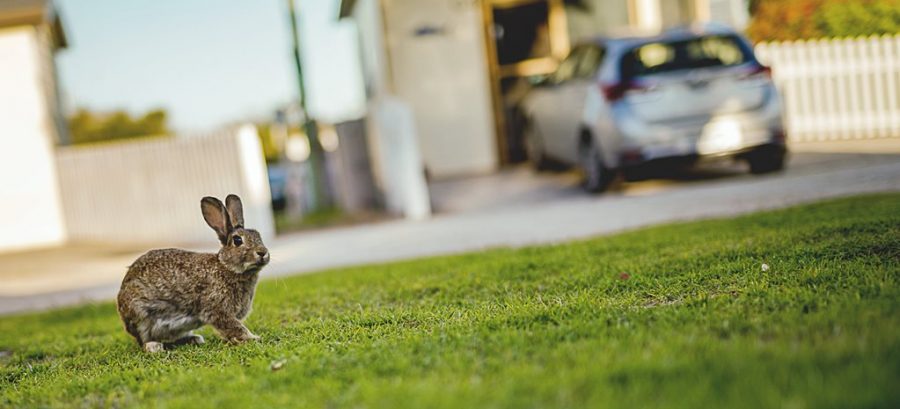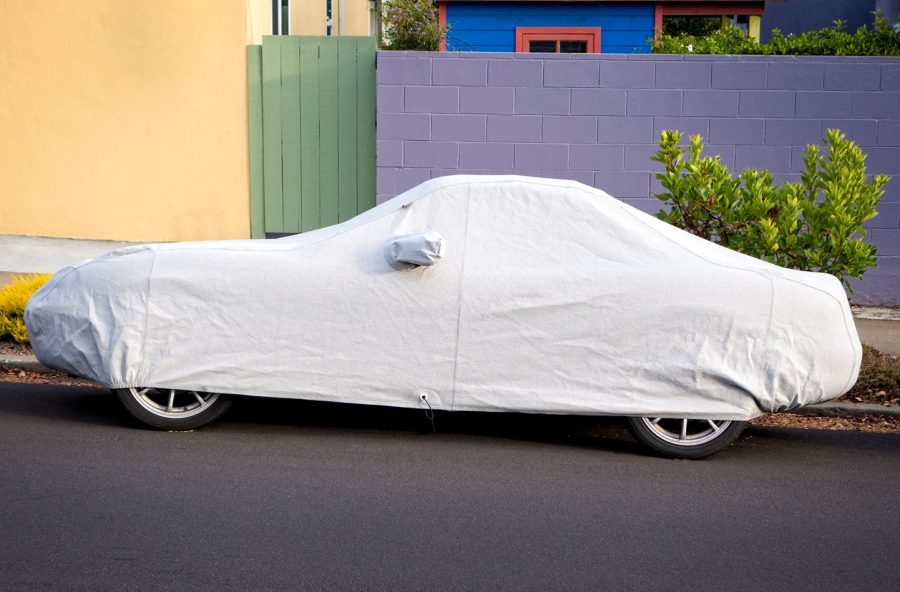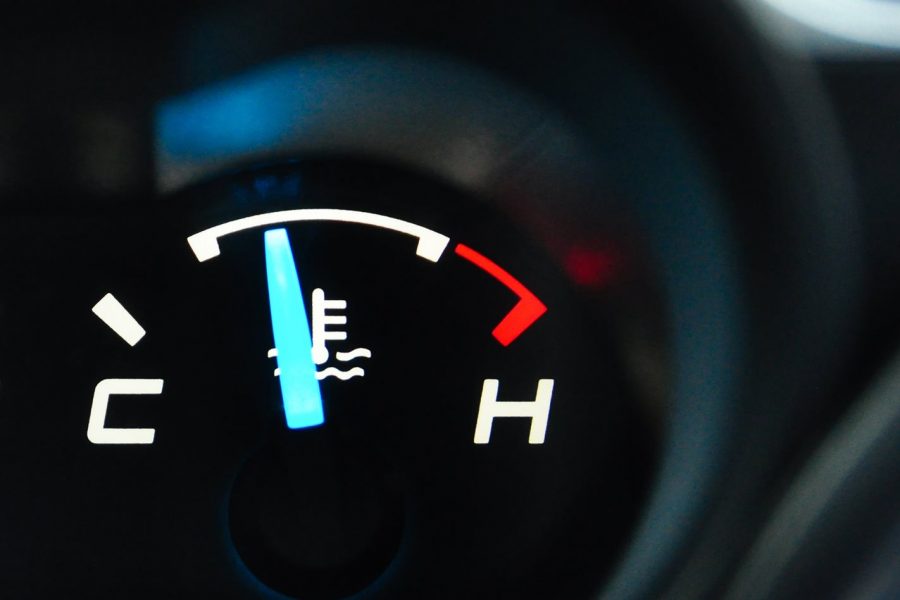Social distance restrictions have meant many of us are barely driving our cars. That raises the question; how can we save money on our cars while we’re in lockdown?
Do we have to still register our cars? Can we pause our car insurance? Will my tyres go flat? Is it bad for your car to not drive it? These are all legitimate questions in these confusing times.
Storing a car properly, for example, can be the difference between easily getting it back on the road when you need to drive it again or having to make costly repairs.
It becomes more important when leaving a car for long periods of time, too as the elements can wither it not just aesthetically, but also in more inconspicuous ways.

Here are some helpful car FAQs to help get you and your car through iso. If you have more questions, please feel free to ask them in the comments below.
How do I store my car if I don’t have a garage?
A cool, dry garage is obviously the most ideal place to keep your car, but not everyone has access, especially if everyone’s at home.
If you have to store your car outside or under an open carport, consider covering it with a decent-quality car cover made from natural, breathable materials and check on it from time to time to ensure the cover hasn’t been ripped.
Car covers vary in cost and quality, and are sized to suit different shapes of cars. We’d recommend spending a little more to get a cover that has a soft inner lining and that fits your car as well as possible. This will help prevent wind lifting the cover off your car.
Pro tip – never unroll your cover on the ground before putting it on the car, because you’ll probably pick up small rocks and dust particles that will scratch your paint as the cover slides over it.

If you haven’t got access to a cover or a carport, avoid parking under trees as far as possible.
Bird poo and tree sap can do untold – and sometimes irreparable – damage to your paint, while falling leaves can collect and rot in your car’s crevices (especially below the windscreen), which can lead to premature rust problems.
If that’s is unavoidable, be sure to wash the car regularly to remove poo and sap, which will prolong the life of your paint.
Parking the car on level ground is best, keep it in Park (or in gear if it has a manual transmission). You can lightly apply the parking brake, but don’t really yank on it, as this will cause premature stretching of the cable that runs to the handbrake caliper.
Make sure your windows are closed, too.
If you’re in a regional area, it’s not a bad idea to plug crevices like exhaust pipes and air intakes with rags or plastic bags to avoid turning your car into a burrow for insects or small furrier friends.
Rats, possums and other pesky creatures have been known to turn cars into a nest and eat plastics, so keep entry points covered where you can.
Before driving again, of course, be sure to take any plugs off before driving and check that no creepy crawlies have settled in for the winter.
Should I wash my car if I’m not driving it?
Yes, as well as protecting the paint, it’s important to give it a thorough clean inside to avoid unpleasant interior smells, too. Time to ditch those frappe cups!
Can I get my car serviced during the COVID-19 lockdown?
Yes. At the time of writing, under the social distancing rules in place across Australia, motor mechanics are considered essential workers, as are car dealerships.
Workshops and service departments should have social distancing and vehicle sanitation measures in place, while some companies like Ford are offering a pick-up and drop-off service.
It’s worth noting, too, that companies like Hyundai are offering a 50 per cent discount to health care workers on scheduled servicing, so it’s a great idea to take care of your car while you’re not using it and it’s cheaper!
Should I get my car serviced if I’m not going to drive it?
There’s an old adage that it’s age that kills cars, not miles, so ensuring that your car has all of its vital fluids checked and changed regularly still applies, even if you’re not driving as much.
You should service your car after driving it a certain number of kilometres or after a particular time period, usually about 12 months.
If the latter is approaching, or you’ll soon need your car again after a prolonged period, it’s a good idea to get your car serviced to ensure fluids are topped up, the electrics all work and that things like rubber hoses, filters and brake pads haven’t begun to degrade.
It’s also a good idea to regularly check your oil and brake fluid yourself from time to time in case there are small leaks.
How long does petrol or diesel last before it goes off?
Petrol has a shelf-life of six months if stored in a sealed container – including your car’s fuel tank – at 20 degrees C, or just three months if kept at 30 degrees C.
If the container isn’t sealed it will last about half the time, so be sure your petrol cap is firmly screwed in place.
Diesel will last between six and 12 months before becoming ‘gummy’, which will likely lead to clogged filters and engine parts that will be quite expensive to fix.
How much petrol should I keep in my car’s tank?
This also depends on temperatures. If you’re in a cool climate, the tank should be reasonably full to reduce the risk of condensation that can result in water contamination or rust along the top part of a metal tank.
Conversely, if you’re in a hot climate you don’t want the tank to be too full as fuel expands in the heat, so you want some to leave some breathing space. C
Interestingly, an empty tank will allow air to expand in the heat and then contract again at night, drawing in condensation.
So for either climate, you’ll want to keep your tank about two-thirds full.
Should I run my car’s engine occasionally if I’m not driving?
Yes. Engines are designed to run regularly and components can dry out and even corrode if they remain idle too long.
It’s advisable to drive your car for 15 minutes to get it to its normal operating temperature.

If that’s not possible, just let the engine run at idle until it’s sufficiently warm. If you can’t run the car outdoors, make sure you open the garage door and windows as the exhaust fumes can be deadly in a confined space.
While the engine is idling, press on the brake pedal, ratchet through the gears (and clutch if you have one) and turn the steering wheel. This will help keep the car’s organs lubricated.
Does running the engine charge a flat battery?
Running the engine will help maintain the battery’s charge, but contrary to popular belief you can’t charge a flat battery with the vehicle’s alternator by driving around or idling the engine.
The alternator doesn’t recharge a battery; it tops up what it uses, which is called surface charging. Surface-charging a weak battery will shorten its life.
Proper recharging must only be done with an appropriate multi-stage charger. A good charger costs a lot less than a new battery, so you’re already getting your money’s worth.
Will disconnecting the battery keep it charged?
If the car isn’t being driven for more than a few weeks, the battery will eventually start losing charge, but don’t disconnect it to save power.
Most cars now have clocks, alarm systems and trip computers that draw on the battery even when turned off, which could lead to dramas cranking your car over after a period of even just a couple of weeks.
You’re much better running the engine or going for a quick drive every couple of weeks while the battery is still charged.
The best way to maintain your battery’s health is to invest in a volt-meter and charger. This video shows how to use both.
What happens to my tyres if the car doesn’t move?
Tyres lose air over time, so check the pressure every couple of weeks and add some air when necessary – don’t forget to check the spare.
Driving or moving your car from time to time also benefits your tyres by preventing flat spots from being parked on the one spot for a long period.
Can I pay less for my car insurance if I’m not driving?
Some insurance companies will let you suspend your policy under certain circumstances, such as if you’re going overseas for a while, so it’s worth asking. If they won’t suspend it, you can always terminate the policy and get a refund for the time left on it.
But if you still own the car, there’s always a chance someone might steal or damage it, so you’re best hanging on to it while reducing the premium.
One way is to change your comprehensive insurance to third-party, fire and theft as the likelihood of you having an at-fault accident is considerably reduced.
If you don’t want to take that chance, you can bring the premium down by:
- Increasing your excess
- If your policy is partly based on the number of kilometres you drive each year, reduce that number based on your current situation
- Take any additional drivers off the policy if they too aren’t driving, especially if they’re under 25.
- Go over your insurance policy carefully and ask about removing any extras you don’t need such as roadside assistance, or a rental car for the time your vehicle is being prepared or replaced.
If money is a struggle and your annual insurance bill is due, try and opt for monthly or quarterly payments.
This is also a good time to shop around for a better deal or ask your insurer for a discount – it’s amazing what you can get if you ask.
Can I suspend my car registration?
Unfortunately, you can’t temporarily suspend your car’s registration, you have to cancel it. The only advantage of this is you’ll get a refund for the unused portion.
However, when it comes to re-registering the car you’ll have to get a roadworthy certificate and pay a licence plate fee on top of the registration fee.
And, in most places, you can’t legally leave an unregistered car parked on the street. It can be ticketed by local council and/or police as an abandoned vehicle.
If money is tight and your annual rego bill is due, check if your state offers an opportunity to pay every three or six months.
Can I suspend my car loan payments?
If you find yourself unable to make car-loan repayments, it’s best to get in touch with your bank as soon as possible and while you still have several options available.
Remember, it never hurts to ask. Any alternative loan repayment arrangements will depend on your personal circumstances and financial situation.
Thinking of getting a car loan? You may wish to speak to us by booking an appointment or by booking a time for a chat at this link.
Article reproduced from WhichCar by David Bonnici


